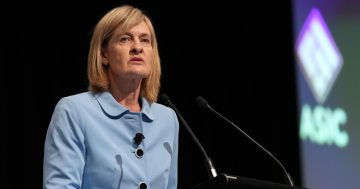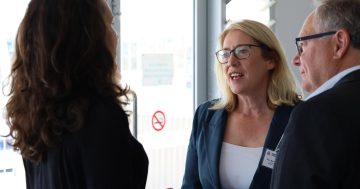Rebecca Hyam* says ensuring our superannuation is invested ethically is easier than we might think.

Photo: Akil Mazumder
The establishment of compulsory superannuation in Australia means every single worker in this country is effectively an investor.
Since different super funds help finance various industries and businesses, without realising it, you could be giving money to things you have major moral objections to.
The thought of this may be overwhelming, but the solution is easier than you might think.
While you may not be able to list off causes you passionately support, chances are you know the types of industries and companies you want nothing to do with.
What do you care about?
Ethical investing is a way for people to target areas they feel help the planet or do some good for society while excluding those they believe cause harm.
Karen McLeod, a financial adviser at Ethical Investment Advisers in Brisbane, says the first step towards ethical investing is figuring out precisely which causes and industries you are passionate about.
But, because of the sheer volume of options available, Ms McLeod suggests it is probably easier to begin by choosing those sectors you object to.
“More recently, there’s been things like avoiding uranium mining, coal seam gas exploration, old growth forest logging and fossil fuel financing, with people preferring to invest in a future they see as more sustainable through clean energy, energy efficiency and clean transport,” she said.
This “negative screening” process is pretty much exactly how the ethical investment industry goes about filtering the companies and industries it considers unworthy of support.
Aman Ramrakha, the Australian Director of research ratings at global investment research firm Morningstar, says it is a sensible way to get started.
“Ethical funds generally screen out certain industries and companies that play in those industries, and generally some of those more common negative screens are things like tobacco or armaments,” he said.
Around the world, the ethical investment industry relies heavily on the 17 sustainable development goals set up by the United Nations.
Described by the UN as a “blueprint to achieve a better and more sustainable future for all”, their goals include things like eliminating poverty and hunger, the provision of quality education, achieving gender equality, clean water and sanitation, affordable and clean energy, sustainable cities and communities and climate action.
Ask your super fund what they screen out
Once you know where you are happy for your money to be spent, the next step is asking your own superannuation fund about its negative screening process.
Mr Ramrakha says while that may seem time consuming, there is actually very little legwork involved.
“Call them up and say, ‘Do you screen something out and, if so, what is that?’,” he said.
“Tobacco is probably one of the most obvious exclusions in recent times and if that satisfies you, great, but you can also ask for more information on which industries or companies they’re actively supporting.”
He says the popularity of ethical investments means more super funds are providing detailed information on their websites about which industries and businesses they help finance.
Ms McLeod says super funds have begun to understand their role goes beyond simply generating a financial return for their members.
“They know they have an obligation to be a responsible investment caretaker for their members’ money,” she said.
“So, a lot of them are already looking closely at a company’s environmental track record, or how that firm is paying their staff, whether it has a secure supply chain, or questioning whether a blind eye is being taken by that corporation to certain issues.”
Despite the “set and forget” attitude most Australians bring to superannuation, research shows that as a country, we want our super funds to do the right thing.
A 2017 survey by the Responsible Investment Association of Australasia (RIAA) shows nine out of 10 Australians expect their superannuation to be invested ethically and managed to balance their personal values and financial interests.
Ms McLeod says in her 12 years of experience working in ethical investing, she has noticed a particularly strong interest among women and younger workers.
“It’s often women who are interested in this type of investing and what we find is they then convince their husbands or partners to become involved as well,” she said.
“There’s a fast-growing movement towards people wanting their money invested ethically, because I think people can see day to day the impact of very poor corporate citizens and people don’t really want their money to be fuelling that sort of future.”
“They want peace of mind knowing they’re actually supporting positive initiatives that are actually doing good and performing well.”
* Rebecca Hyam is a reporter for the ABC.
This article first appeared at www.abc.net.au.











